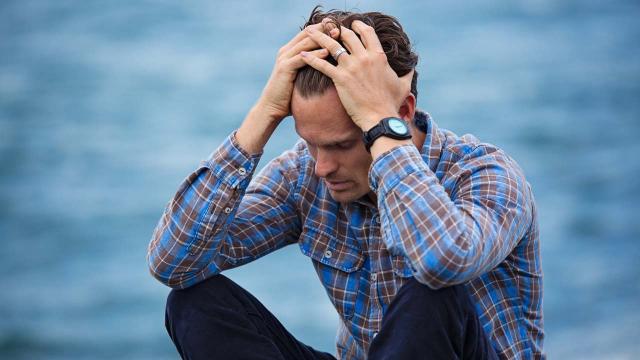There are major deficits in the provision of mental health care for those in Ireland, according to a new report released by Ireland’s independent mental health service regulator, The Mental Health Commission. Released on Wednesday (25 July), the MHC’s annual investigation of mental health (MH) facilities has found a number of poor care standards including placing children into adult rather than Child and Adolescent Mental Health Services (CAMHS), failure to maintain cleanliness and upkeep of facilities, and “widespread use” of physical restraint and isolation.
The Chairman of the MHC, John Saunders, has branded services “unsafe and substandard.”
Failing to comply
While some areas of improvement since earlier years are noted in the report, such as several services “working in partnership with the people whose care they deliver”, the areas of improvement are overshadowed by the multiple problems.
Out of 64 approved centres inspected, only two were fully compliant with “legislative requirements.” All others failed to comply with one or more of the requirements. Low staff levels, unsuitable use of physical restraints and seclusion (with 69% of approved centres that used physical restraint not being compliant with its use), and levels of availability of therapeutic activities are some of the areas of shortfall.
Non-conformance with national policy regarding person-centred and recovery-focused care is another area the report highlights. In those where individualised care plans were “technically compliant”, the report says these plans “were not always person-centred or recovery-based.” This goes against A Vision for Change, Ireland’s national policy for MH. Having recovery and person-based plans makes sure service users’ needs are met and gives them goals to work towards. The plans should be created collaboratively between them and a multidisciplinary care team.
'Undermining' of human rights
The report writes that the level of failings in some areas contributes to an “undermining” of human rights. This pertains, among others, to instances where children are placed in adult services, rather than CAMHS where they should be placed.
In total, the report found that 82 children admitted into MH care were admitted into adult units. This is up from 68 in 2016. Reasons for the failure of children being admitted into the correct type of unit include a shortage of beds in CAMHS units and absence of an out-of-hours CAMHS service in some areas.
Further breaches of human rights, cited in the report, include service users not having freedom of movement around the facility they were in, not having privacy, or the ability to access drinks when desired. Regarding the human right to privacy, 45% of the approved centres examined failed to meet it. Irish children’s charity, ISPCC, has echoed the MHC’s terming the admitting of children into adult services a breach of human rights by calling the practice “inappropriate” and a “breach of the rights of children and young people.”
Mental Health Commission's 2017 Annual Report highlights a concerning rise in the number of children placed in adult mental health units last year. This practice is both inappropriate and a breach of the rights of children and young people. It must be brought to an end. https://t.co/naBB7vBTUu
— ISPCC Childline (@ISPCCChildline) July 25, 2018
A World Health Organisation report on long-term MH care institutions in Europe also found concerns over the human rights of those receiving care.
The report, published in June, included concerns over privacy, and a lack of human rights knowledge by members of staff.
Calls for reform of Mental Health Act
The MHC’s Chairman, John Saunders, has said that in light of the findings of the report, combined with problems consistently being found in MHC reports since 2012, “reform of the 2001 Act is now urgently needed.” The Mental Health Act, passed in 2001, outlines the rights of those in Ireland receiving care for mental ill-health and what rules should be followed. Currently, however, it is not believed to go far enough.
Despite a review of the 2001 Act being published in 2014, changes called for have not yet been legislated. In a statement issued after the MHC’s report publication, the Director of Mental Health Reform, Dr Shari McDaid, has said that the Irish government should “urgently update our mental health law so that people can feel safe accessing the services they require.” Mental Health Reform is the country’s national coalition on MH. McDaid also calls on increased funding to be given to MH services “above and beyond” that which the government has already pledged in Budget 2019.




